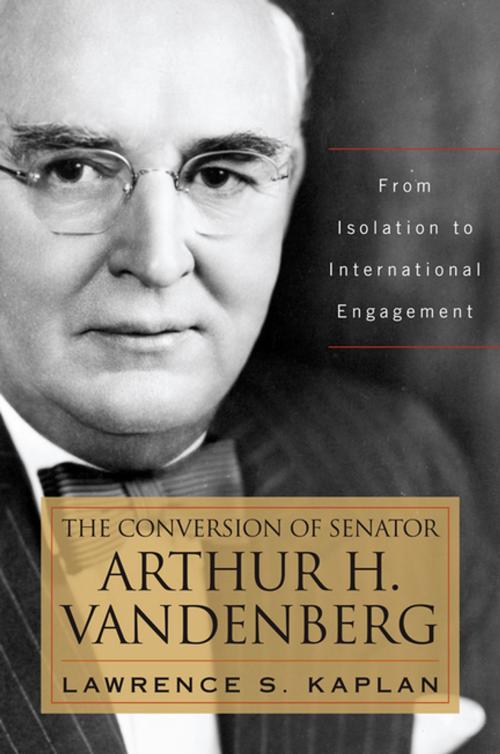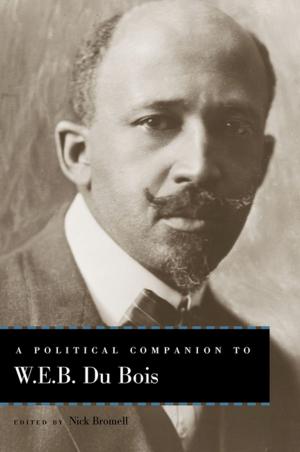The Conversion of Senator Arthur H. Vandenberg
From Isolation to International Engagement
Nonfiction, Social & Cultural Studies, Political Science, International, International Relations, Biography & Memoir, Political, Government| Author: | Lawrence S. Kaplan | ISBN: | 9780813160610 |
| Publisher: | The University Press of Kentucky | Publication: | April 14, 2015 |
| Imprint: | The University Press of Kentucky | Language: | English |
| Author: | Lawrence S. Kaplan |
| ISBN: | 9780813160610 |
| Publisher: | The University Press of Kentucky |
| Publication: | April 14, 2015 |
| Imprint: | The University Press of Kentucky |
| Language: | English |
The United States has looked inward throughout most of its history, preferring to avoid "foreign entanglements," as George Washington famously advised. After World War II, however, Americans became more inclined to break with the past and take a prominent place on the world stage. Much has been written about the influential figures who stood at the center of this transformation, but remarkably little attention has been paid to Arthur H. Vandenberg (1884--1951), who played a crucial role in moving the nation from its isolationist past to an internationalist future.
Vandenberg served as a U.S. senator from Michigan from 1928 to 1951 and was known in his early career for his fervent anti-interventionism. After 1945, he became heavily involved in the establishment of the United Nations and was a key player in the development of NATO. As chairman of the Senate Foreign Relations Committee during 1947 and 1948, Vandenberg helped rally support for President Truman's foreign policy -- including the Marshall Plan -- and his leadership contributed to a short-lived era of congressional bipartisanship regarding international relations.
In The Conversion of Senator Arthur H. Vandenberg, Lawrence S. Kaplan offers the first critical biography of the distinguished statesman. He demonstrates how Vandenberg's story provides a window on the political and cultural changes taking place in America as the country assumed a radically different role in the world, and makes a seminal contribution to the history of U.S. foreign policy during the initial years of the Cold War.
The United States has looked inward throughout most of its history, preferring to avoid "foreign entanglements," as George Washington famously advised. After World War II, however, Americans became more inclined to break with the past and take a prominent place on the world stage. Much has been written about the influential figures who stood at the center of this transformation, but remarkably little attention has been paid to Arthur H. Vandenberg (1884--1951), who played a crucial role in moving the nation from its isolationist past to an internationalist future.
Vandenberg served as a U.S. senator from Michigan from 1928 to 1951 and was known in his early career for his fervent anti-interventionism. After 1945, he became heavily involved in the establishment of the United Nations and was a key player in the development of NATO. As chairman of the Senate Foreign Relations Committee during 1947 and 1948, Vandenberg helped rally support for President Truman's foreign policy -- including the Marshall Plan -- and his leadership contributed to a short-lived era of congressional bipartisanship regarding international relations.
In The Conversion of Senator Arthur H. Vandenberg, Lawrence S. Kaplan offers the first critical biography of the distinguished statesman. He demonstrates how Vandenberg's story provides a window on the political and cultural changes taking place in America as the country assumed a radically different role in the world, and makes a seminal contribution to the history of U.S. foreign policy during the initial years of the Cold War.















